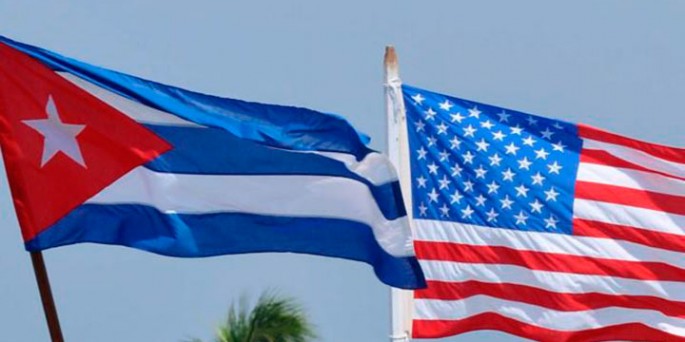In what is being called an “historic shift” in U.S.-Cuba relations, talks of normalizing diplomatic relations are being explored for the first time since they were severed in 1961, more than half a century ago.
Included in the process of normalizing relations would be the opening of a U.S. embassy in Cuba’s capital Havana, as well as the easing of financial restrictions and travel ban for U.S. citizens, and efforts to push through the reduction or complete halt in the 54-year-old trade embargo.
Cuban President Raul Castro was quoted as saying he “welcomed” the open dialogue while U.S. President hailed the talks as a “new chapter” in U.S.-Cuba relations.
The talks which were brokered between Canada and the Vatican, have been over a year in the making, and the official announcement follows a development over a tentative prisoner exchange between the U.S. and Cuba.
The exchange involved the release of Alan Gross, a U.S. contractor held in Cuba on charges of “subversion” for trying to bring internet service to a Jewish community group in Cuba, and the release of three of five Cubans held in the U.S. on charges of spying on Cuban exiles in Florida while attempting to infiltrate U.S. military bases.
The “Cuban-Five” as they came to be known were apprehended in 2001 and have been held for 13 years while Alan Gross was held in Cuba for five.
President Obama in his coordinated address with President Castro said his release allows the U.S. to “cut loose the anchor of the past.” President Obama also admitted that the policy of “isolation” had failed in achieving what the U.S. had set out to do a half century ago, which was effectively deteriorate the Communist regime there.
Upon his release Alan Gross addressed the public by saying that he welcomed the shift in policy, and that it pains him to see the Cuban people hurt by “mutually belligerent policies.” Alan Gross added that “It was crucial to know I was not forgotten.”
President Castro echoed this sentiment saying that he has on “many occasions” been prepared to “hold a respectful dialogue with the government of the United States based on sovereign equality.”
Proponents of the renewed talks say the normalizing of diplomatic relations is the first step in throwing to the waste side an outdated policy of the Cold War era that only hurt the Cuban economy at the expense of its citizens. Meanwhile families who were split by the travel ban can finally be permitted to be reunited with their loved ones.
Critics of the shift, including U.S. Senator Marco Rubio, himself a refugee of Cuba, has said the move shows President Obama is trying to “appease rogue regimes at all costs,” and that any vote on funding a U.S. Embassy in Havana will be a “struggle.”
Rubio added “This president has to be the worst negotiator we’ve ever had in the White House.”
A big advantage to the shift in U.S.-Cuba policy could be handed over to the economies of both the U.S. and Cuba, as the further reduction or complete elimination of trade restrictions could foster U.S. agribusiness in exporting billions of dollars worth of goods a year. It is estimated that under President George W. Bush, $4.7 billion in exports were made to Cuba under relaxed restrictions implemented by President Clinton, and it is projected that number could skyrocket considering Cuba imports 80 percent of its food.
Proponents of the shift say it is a win-win for the economies of both nations.
By John Amaruso
